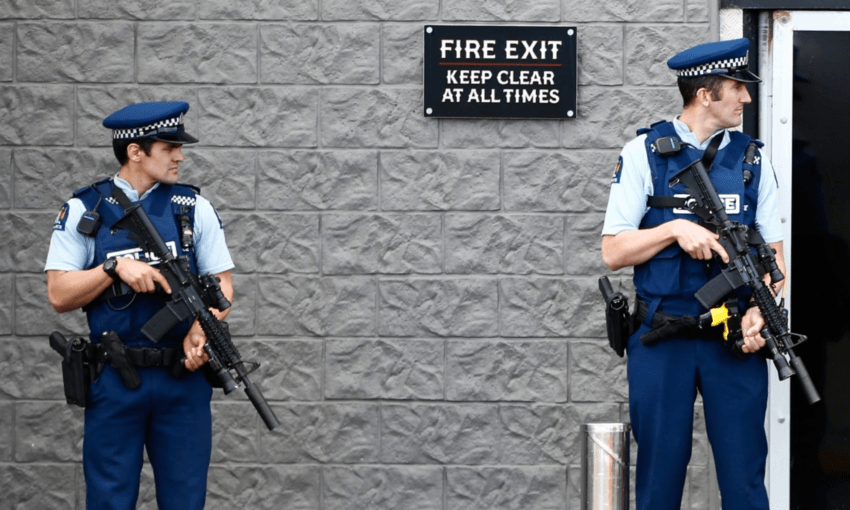Sending in armed police is exactly how not to defuse a situation where a person is highly distressed and suicidal, writes someone who has been in a similar situation herself.
Last week a man was shot by police. There’d been a call for help – he was suicidal, had a weapon – the police responded, and after an hour he was shot. Why? Whatever the circumstances may have been, this man deserved a compassionate response. I imagine that when armed officers arrived on the scene, he suspected that compassion was not what he was about to receive. It is likely things escalated from there. This was a man in need of help; someone who was a threat to himself, not others. The police are not the right people to respond to these incidents. They carry baggage: the fact they deal with offenders, enforce the law, and are primarily there to maintain public safety. They also carry guns.
As someone who has been in a similar situation to the one this man was in, the news coverage was triggering. I too called 111, multiple times. An officer in time would have saved a lot of trauma down the line, but that is yet another part of the problem – emergency services tend not to respond unless there is a ‘real’ threat, or immediate danger. In my case, when I made the initial call I had a vague sense of unease and didn’t feel safe. That was not enough. Later that night, sleep deprived and by now highly distressed, I thought I saw someone with a gun. I called 111 again. By the time help finally arrived, I was prepared for self defence, and confronted the officer at the door with a small pocket knife. He responded by drawing a gun.
In these situations, the person in distress is beyond caring. Being confronted with a gun is unlikely to make them ‘see the light’ or back down. In fact, it is more likely to do the opposite. The media tends to report the tragic cases where someone loses their life, but not the many other instances where the officer changes their mind at the last minute and decides not to pull the trigger, or pulls out the taser or pepper spray instead. All of these incidents are traumatic. They shouldn’t be allowed to happen in the first place.
Small rural communities, like the one to which this man belonged, are particularly vulnerable to incidents of this kind. Generally a sole-charge police station is about the only thing available as far as emergency services go. Police Commissioner Mike Bush stated in his response to the tragedy that officers are trained “not just in tactical options, but in de-escalation and effective decision making.” I would hope that he’s right. However, this doesn’t change the fact that sending an armed officer to help a seriously distressed individual is in itself a recipe for escalation, and not at all the right response.
Perhaps what is needed are ‘community guardians’: people that are willing to work the front lines independently, but alongside police. This would mean that when a call for help comes through, it would be an unarmed member of the community that responds in the first instance, with the shadowing of police as required. Yes, this might require a massive shift in our understanding and acceptance of risk, and who shoulders the burden. But it is, after all, a collective burden and not simply a matter of policing. In many situations, a person prepared to listen and just be there – without the threat of an armed stand-off if things don’t go well, or a one-way ticket to a locked room at the local mental hospital – would mean a lot. Potentially it could save lives and prevent a lot of unnecessary trauma.
Where to get help
Need to talk? Free call or text 1737 any time for support from a trained counsellor.
Lifeline – 0800 543 354 or 09 5222 999 within Auckland.
Samaritans – 0800 726 666.
Suicide Crisis Helpline – 0508 828 865 (0508 TAUTOKO). Open 24/7
Depression Helpline – 0800 111 757 or free text 4202. This service is staffed 24/7 by trained counsellors
Samaritans – 0800 726 666
Healthline – 0800 611 116
